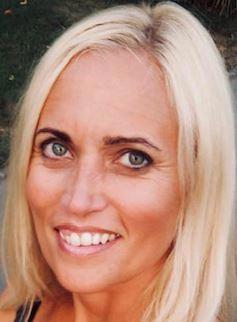Dianne MacKenzie - primary headteacher
The Mastery of professional learning
Professional learning has always been at the heart of my teaching career as I personally believe it enables me to critically reflect and challenge my pedagogical knowledge and understanding. So, when I started to question my next steps, (having been a depute headteacher for 14 years) I looked to professional learning to challenge my thinking and perhaps solve my questions. Whilst having this conversation with some of my colleagues, we decided to look into Masters learning, specifically ‘PG Certificate Leadership and Learning: Into Headship'. If the GTC Scotland recognises that effective leadership depends on the principles of collegiality (GTCS, 2020), taking on a new challenge with my colleagues seemed like a good place to start!
I am currently based in East Lothian Council, who commit to on-going career-long professional learning within a collegiate culture through their Professional Learning calendar.
'Leadership is recognised as one of the most important aspects of the success of any school. Headteachers and teachers who are empowered, and who empower others to take ownership of their own learning, have a strong track record of ensuring the highest quality of learning and teaching. This in turn helps to ensure that all children achieve the best possible outcomes.
[National Improvement Framework]
Liaising with the central team, I was able to explore ‘Into Headship’ and carefully consider the pros and cons of the programme by attending information sessions with previous participants and having coaching conversations with my headteacher and Quality Improvement Officer. I then applied to the University of Edinburgh and waited with a sense of anticipation and fear!
‘The first thing I would say is: ‘know where you are’. (Gilchrist, 2018)
Undertaking Masters learning meant that I was required to consistently make the time for self-evaluation and gather the views of colleagues with regard to my role as DHT. Although this seemed very daunting, the feedback helped challenge my own personal bias and encouraged me to be critically aware of my role as a leader and a manager. Since undertaking ‘Into Headship’ and then ‘Evolving Systems Thinking’ with SCEL and Education Scotland, I regularly make time for that ‘deliberate pause’ to consider where I am now as a leader, where my focus needs to be and the impact on staff and learners. As a headteacher, how can I use my leadership skills to strategically plan our next steps within a collegiate and learner centred approach?
There are times when I felt overwhelmed by the amount of research and reading involved in Masters learning. However, it challenged my thinking around education systems, leadership and how leaders at all levels can influence learner outcomes. This, alongside the professional dialogue with colleagues, gave me the confidence to critically engage with research and consider how it was appropriate for my setting. It also encouraged me to consider how I could enhance our culture for learning across our school to enable members of our school team to critically engage and collaborate with outcomes for learners at the centre. However, how could I be sure that our strategic planning was moving our school community in the right direction?
I knew that the knowledge gained through self-reflection, research and collaborative discussion wouldn’t impact on learner outcomes if I didn’t make connections with the school data. It really came back to that idea; ‘Know where you are.’ (Gilchrist, 2018). I had regularly used data to inform decisions but with so much data available how could I ensure I was using the right data in the right way? Engaging in Masters learning gave me the opportunity to explore data and realise how it can enable you to lead with credibility, inspire and motivate others through clear communication and establish a shared culture of responsibility and accountability (Sharratt & Fullan, 2012). This learning has shaped the way in which our school team uses data to ensure we are consistently reflecting on outcomes for learners. It is proving instrumental in our school improvement journey by challenging us to constantly evaluate the progress we are making towards our goals and making adjustments in a timely manner.
In conclusion, Masters learning can be extremely demanding when you are trying to balance your work commitments, your home life and everything else in-between! There will definitely be times when you ask yourself ‘Why?’…and perhaps not in the way Simon Sinek refers to the ‘Why’! (Sinek, 2009). However, for me, the benefits far outweigh the challenges with reflection, strategic planning, collaborative professional learning and continuous dialogue around the data now underpinning my leadership approach. As John F Kennedy said ‘Leadership and learning are indispensable to each other.’
